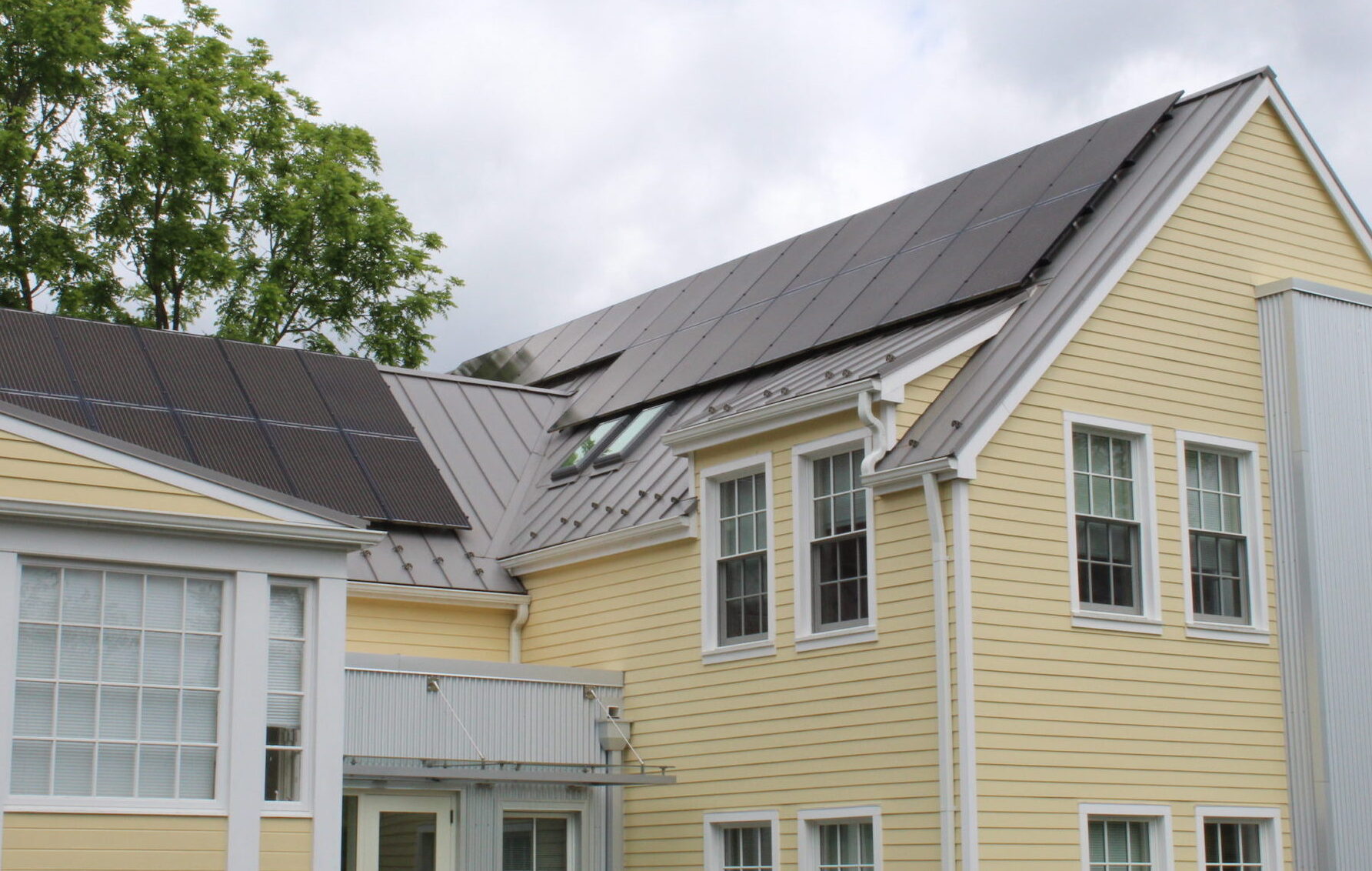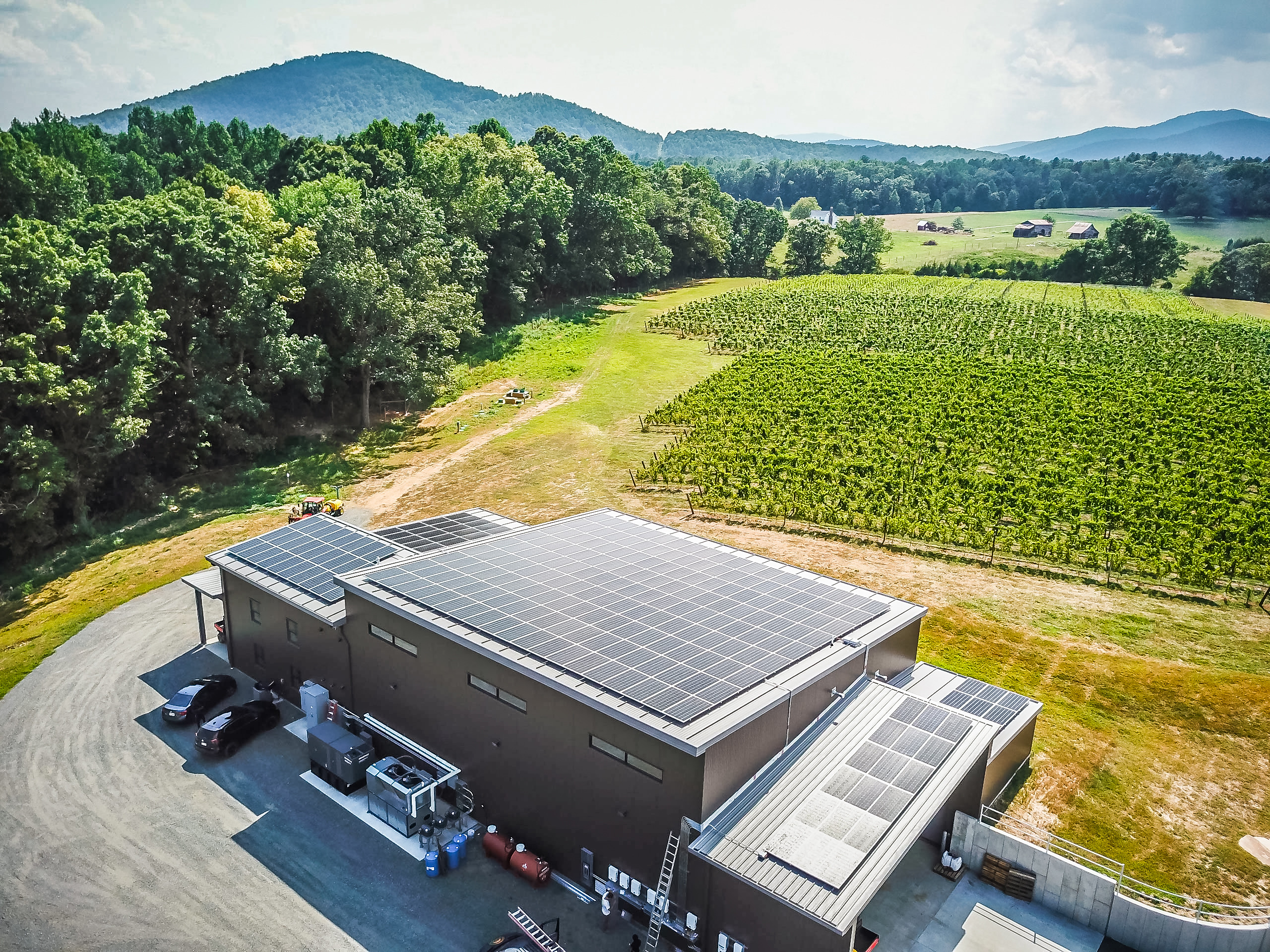Bill of the Day: Expanding Solar Energy
Updated on February 20th, 2023.

Through distributed/shared solar, low-to-moderate income Virginians will be able to greater participate in solar programs and offset all or a majority of the costs of a solar energy system. Image Credit: Piedmont Environmental Council (PEC)
Why should Virginia go solar?
Going solar reduces energy burdens and costs for Virginians while making our buildings more energy efficient and clean. Installing more solar is critical for Virginia to hit our 100% clean energy targets outlined in the Virginia Clean Economy Act (VCEA).
Unfortunately, there are many policy barriers in place that hinder rooftop and distributed/shared solar options for Virginians (to learn why, read our “BRINGING MORE RESILIENT ENERGY TO VIRGINIA COMMUNITIES” policy paper).
On the bright side, a series of bills to promote distributed solar have passed through the Senate with bipartisan support and are now headed to the House! These bills will:
- Develop recommendations for schools to be solar-ready when constructing or renovating buildings.
- Expand shared solar programs throughout the state.
- Help Virginia take advantage of federal Inflation Reduction Act (IRA) funds to advance solar projects.
Solar Bills To Support in the General Assembly
A series of solar bills have passed the Senate with bipartisan support, but must still be passed by the House of Delegates. The House will soon hear and vote on these solar bills:
(Senator Hashmi) Expands solar and energy efficiency projects for low-income and moderate-income Virginians by empowering the Clean Energy Advisory Board to apply to the Environmental Protection Agency (EPA) for grant funds made available via the Inflation Reduction Act (IRA)’s Greenhouse Gas Reduction Fund.
Expands the shared solar program to customers in Appalachian Power Company and Old Dominion Power Company’s territories while setting limits on monthly utility bills. This makes our energy transition more equitable by reducing energy costs for participating customers, especially low-income customers who are exempt from the minimum bill.
Allows more Virginians to participate in our clean energy transition by expanding Dominion’s shared solar program and requiring that a customer’s net bill for participating in the shared solar program will not exceed the minimum bill established by the State Corporation Commission (SCC).
Develops recommendations on strategies to assist interested school divisions with incorporating renewable energy generation facilities in the construction or renovation of school buildings. Companion to HB1852.
Directs the Commission on School Construction and Modernization, in consultation with the Department of Energy, to develop and make recommendations on strategies to assist interested school divisions with incorporating renewable energy generation facilities in the construction or renovation of school buildings Companion to SB848.
Take Action

Rooftop Solar at Hark Vineyards in Earlysville, VA. Image credit: Sarah Stryker
Expanding our solar programs to include our schools, public facilities, and residential homes will create jobs, bolster energy efficiency, and decrease electricity costs. With the Inflation Reduction Act (IRA), there is no reason for Virginia to leave these federal funds on the table. Through these bills, low-to-moderate income Virginians will be able to greater participate in shared solar programs and offset all or a majority of the costs of a solar energy system.
Unfortunately, all of our supported solar bills were killed in the House by the end of session. We will continue to work with our Partners at the Sierra Club Virginia Chapter, SELC, and others to promote solar development in the Commonwealth in the years to come.
Read More on Clean, Efficient Energy
Report: Empowering Tomorrow
Clean Energy States Alliance recently released a report outlining how Solar for All state programs, funded by the Inflation Reduction Act, will benefit low-income and disadvantaged communities.
Inflation Reduction Act Tracker
Our Partners at EDF released an up-to-date tracker tool that records steps taken by federal agencies to implement the Inflation Reduction Act (IRA).
EPA Funding Announcements from the Bipartisan Infrastructure Law and the Inflation Reduction Act
The Environmental Protection Agency released an updated overview of current and upcoming funding opportunities from the Bipartisan Infrastructure Law and the Inflation Reduction Act.
Bill of the Day: Investing in the SAVE Act
VCN is supporting efforts to strengthen energy efficiency across the Commonwealth through the SAVE Act.
Federal Energy Funding for Rural and Remote Areas: A Guide for Communities
The Office of Clean Energy Demonstrations released a resource guide for individuals looking for federal funding and assistance for local energy projects in rural or remote communities.
Federal Funding & Opportunities for the Chesapeake Region
The Campbell Foundation released a resource guide providing an overview of different pathways through which current federal funding is being distributed to the Chesapeake Bay watershed.
Water Program Portal
Atlas Public Policy & Water Foundation released their Water Program Portal, a digital information hub for organizations and public agencies tracking recent federal investments in water, specifically the Infrastructure Investment and Jobs Act and the Inflation Reduction Act.
What to know about the Inflation Reduction Act on its one-year anniversary
August 16th marked the signing of the Inflation Reduction Act (IRA) into law. The landmark IRA was the first major piece of legislation passed by Congress to address climate change, and just one year after its passage it is already improving Virginia residents’ lives.
IRA & IIJA Fact Sheet
Generation 180 released a fact sheet that informs individuals and communities how to access new federal funds under the Inflation Reduction Act, the Infrastructure Investment and Jobs Act, and other new Federal funding in their communities.


